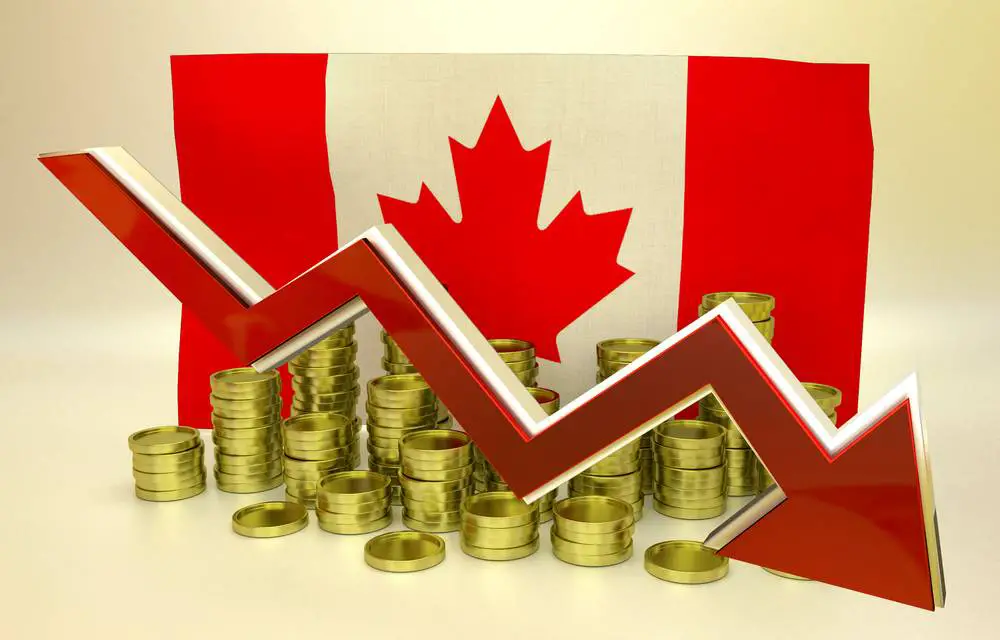Canada’s debt has reached a new level of enormity, surpassing the one trillion dollar mark. What does Canadian debt mean to you, the individual? What can you learn from Canada’s poor financial situation? This post will demonstrate valuable lessons that you can learn from Canada’s financial woes to better manage your money and improve your financial standing without having to get your CPA license.
Pay Your Debts Off Now
It is common knowledge that the best way to improve your financial standing is to pay off your outstanding debts and stop credit card processing every little purchase. Unfortunately, not many people actually put this knowledge into practice. Do not allow yourself to be one of those people. Pay off your credit cards or loans as soon as possible. Make this a priority. The sooner you pay off your debts, the less money you will pay in the process. If you pay off your outstanding debts as soon as possible, you will improve your financial standing drastically better than Canada’s debt situation.
Do Not Believe That Debt Is A Necessity
With the Canadian debt steadily increasing, many people are under the assumption that, in some instances, debt is a necessary evil. This is not necessarily true. With prices for homes reaching new heights, you probably will not be able to buy outright. However, that does not mean that you should not make paying off your mortgage a priority. No matter what you may need to borrow money for, do not allow yourself to think it is just another part of day-to-day life. Always treat any money you may owe as a dire situation. Buy pre owned cars instead of financing a new one. Prioritize paying it back as soon as possible. Keep your mind on staying out of debt. This way of thinking is much more conducive to better money management and improved financial standing.
Live Under Your Means
You may have heard the age old wisdom to live within your means. You’d be even better off if you take that a step further. Live under your means. Break out of the financially draining cycle. You do not need to have the finer things in life, especially if you cannot really afford them. If you get comfortable living with less, maybe cutting back on cable channels or making your own coffee rather than running to Starbucks, you will be better prepared to live well later on in life. Manage your money better by living under your means. Clearly, this would be better for the Canadian debt situation and your overall long term financial health.
Save, Save, Save
Once you have paid off all your easy loans and cut back to a more modest lifestyle you are ready to start saving. In order to maintain the good financial standing you have achieved, you will need to be prepared for the worst. If you do not have any savings, you could find yourself back under the weight of crushing debt. Wherever you have cut costs, put that money into your savings. This way, if an unexpected cost comes up you will be prepared. Always continue saving, in increments both small and large. This practice will guarantee you avoid a debt crisis in the future.
Stay Current On Canadian Budgets
If you are Canadian, or even if you are not, you should definitely pay attention to the current economic climate of Canada and Canadian debt developments. This practice will help you to anticipate what will happen in the not so far off future, so that you can make better financial decisions, as well as more informed investment decisions. Thankfully, this has never been easier. Searching online gives you the latest updates on Canada’s national debt, like the latest liberal Canadian budget for big spending in 2017. If you want to learn from the Canada national debt crisis, pay attention the economic news and developments to make sound financial decisions regarding margin equity and more.
Above Critical Threshold
Recent reports are indicating that Canadian debt has surpassed the critical thresholds. This excessive borrowing has forced Canada into the top spot for countries most likely to see a financial crisis. What can you, the individual, learn from this though? You should learn to establish your own critical threshold. How much debt is too much? If you do not establish a critical threshold for your own personal finances, you too will surpass your critical threshold and wind up with outstanding debts that you will never be able to pay back.
Keep these tips in mind. If you change your mindset, you will be able to avoid debt like Canada’s and improve your financial standing. Pay off outstanding balances now, live under your means and, most importantly, save. If Canadian debt can teach you one lesson, it should be that borrowing money should be a last resort, not a day-to-day necessity. Educate yourself on what not to do from the lessons Canadian debt provide you, and be sure to teach kids about money to avoid this same problem arising for the next generation. This will immediately improve your money management skills to improve your financial standing.
Image from http://www.straight.com/news/487581/bmo-reports-average-household-debt-reaches-92699-canada
 Business First Family Business, Accounting, Finance, Investing, Marketing And Management
Business First Family Business, Accounting, Finance, Investing, Marketing And Management
